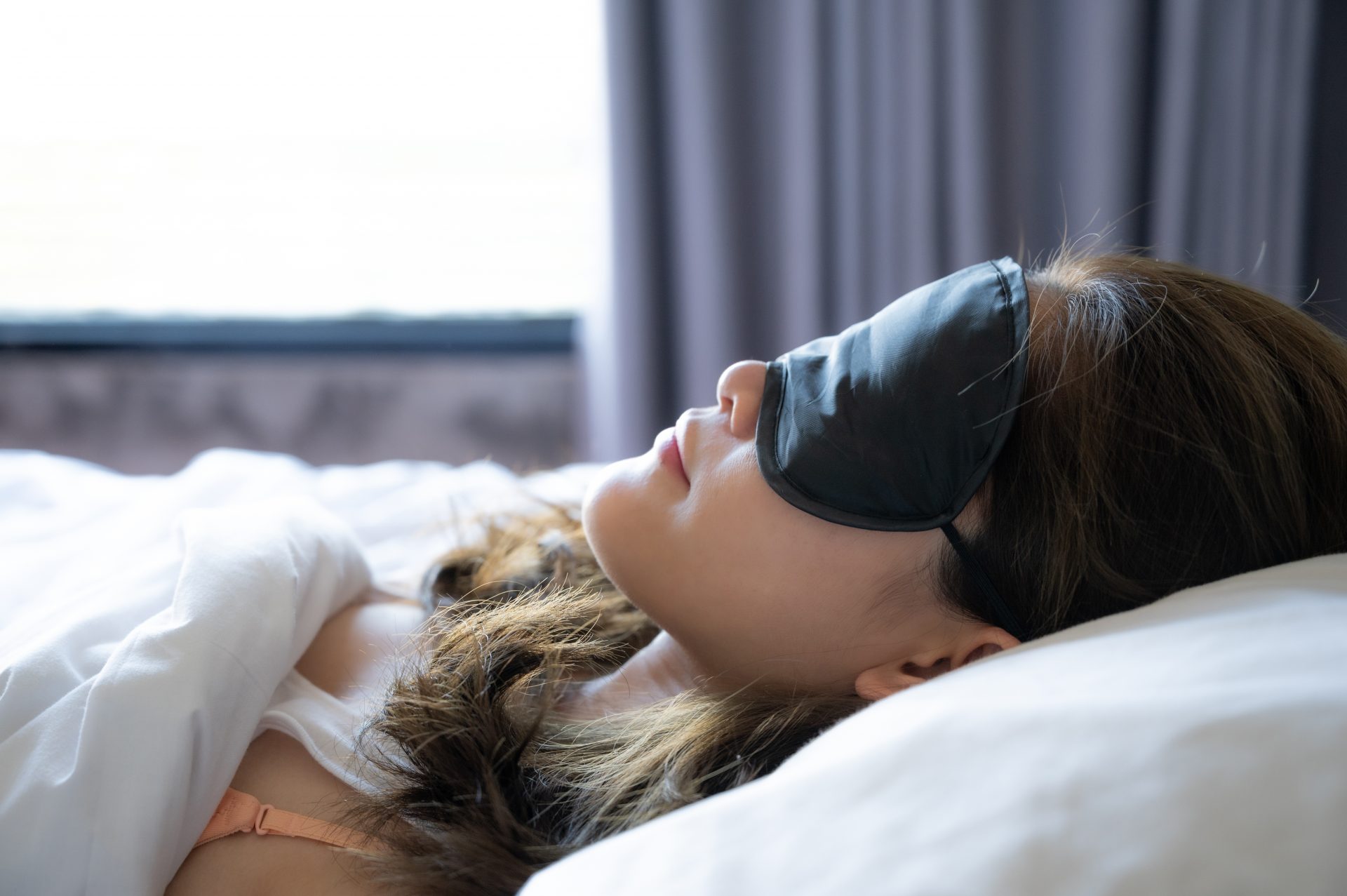Going to someone else’s house for Christmas? Here’s how to sleep well in an unfamiliar place
Are you facing another festive period sleeping on the sofa? Here’s how to make sure your sleep doesn’t suffer.
Going to someone else’s house for Christmas may feel like a lot of faff at first, but it certainly has its perks. Not only do you get away with not having to organise everything, but you also don’t have to worry about catering to everyone’s tastes.
But there’s still one big downside to staying at a friend or family member’s house over the festive period – the sleeping situation.
Whether you’re given a blanket to sleep on the sofa, forced to share a tiny single bed with your partner or left with an unlucky spot on the floor, it’s probably not going to be the most comfortable set-up, and being in an unfamiliar location can make it even harder to nod off than usual.
You may also like
3 ways the cold weather messes with your sleep – and what you can do about it
Of course, that can make getting good sleep pretty tricky. And while you may be able to cope with a lack of sleep for a day or two, losing out on sleep night after night isn’t exactly ideal – especially when you’re drinking more and spending lots of time socialising with people you might not be used to.
So, how can you improve your sleep when you’re sleeping in an unfamiliar (and potentially uncomfortable) spot? We asked Martin Seeley, sleep expert and CEO of Mattress Next Day, to share his top tips.
1. Set boundaries, and communicate them

Being in a house full of lots of people can become pretty stressful – especially when it’s impacting your sleep. To remedy this, Seeley recommends setting some clear boundaries and asking for the things you need to rest well.
“Often it can be tricky to communicate how you feel or ask for something better when staying with family – especially in-laws or those who you may not know as well – but communication is key and those hosting you will want to make you feel as comfortable as you can be,” he says. “So when they offer you the spare room over the sofa or ask if you’d like a better pillow than the one already there, say yes!”
Seeley continues: “Setting boundaries early will also allow those whose house it is to know what kind of sleeper you are. If you ask early on for things that you know will make your stay more comfortable, it will be less awkward at the end when everyone notices how tired you look even though you said you slept fine.”
2. Bring your own pillow
It may sound silly, but bringing your own pillow will not only help to make your stay more comfortable, but will also make your sleeping environment feel more familiar and homely.
“Having the right pillow for you is incredibly important for getting a good night’s sleep, and everyone has a different pillow preference,” Seeley explains.
You may also like
The surprising impact a pillow can have on your sleep – and how to pick the right one for you
“When you have a flat or lumpy pillow this can often lead to a disturbed night’s sleep from a lack of neck and head support, and you could wake up with neck pain or a headache.
“If you have your own pillow that you know you sleep well with, bring it along with you.”
3. Don’t eat and drink lots before bed

If you want to give yourself the best chance at a good night’s sleep, especially in an unfamiliar place, then it’s a good idea to keep an eye on how late you’re eating.
“Going to bed really full can make you feel uncomfortable, so make sure to let the food go down before you lie down,” Seeley says. “The same goes with drink. Having alcohol in your system means you spend less time in the important REM stage of sleep, which leads to you waking up feeling groggy and less refreshed.
“If you drink too much you may also find your sleep is disturbed due to needing to go to the toilet in the night, and if you’re not in your own house this can be even more of an inconvenience.”
4. Adjust your environment where possible
While you may not be able to choose exactly where you’re sleeping while staying in someone else’s house, there are some little changes you can make to help you feel more comfortable.
“An easy way to help yourself get the best possible sleep at a different house is by adjusting your environment accordingly,” Seeley says.
“If you’re in a spare room, you could change a few things to make it feel more like your room, whether that’s by adjusting the pillows, adding a blanket, tidying away any mess, dimming the lights or bringing in a lamp from another room.”
You may also like
Alcohol and sleep: what is the impact of drinking on the quality of your sleep
He continues: “If you’re on a sofa, make sure it’s comfortable for you, remove any hard display cushions and add pillows, bring a duvet and blankets, turn off any hall lights or lamps that may keep you up and shut any doors leading to other rooms which could get used in the early hours.
“You should also bring with you anything you need to help block your senses while you sleep, such as silicone or foam earplugs and an eye mask. On the flipside, if you live in a city and are used to noise pollution and are heading to the country, you may even want to bring some white or brown noise or listen to a playlist to help you sleep.”
5. Try and stick to your normal routine

With all the chaos of Christmas, it can be tempting to throw your entire routine out the window. But preserving as much as possible will be beneficial for your sleep and energy levels, Seeley explains.
“Getting to bed at a decent hour and allowing yourself to try and get the full eight hours’ sleep that your body and brain needs is imperative if you want to feel refreshed the next day. Perhaps give yourself a time each night that you will make sure you are in bed by, and try to stick to it.”
Images: Getty
Source: Read Full Article
